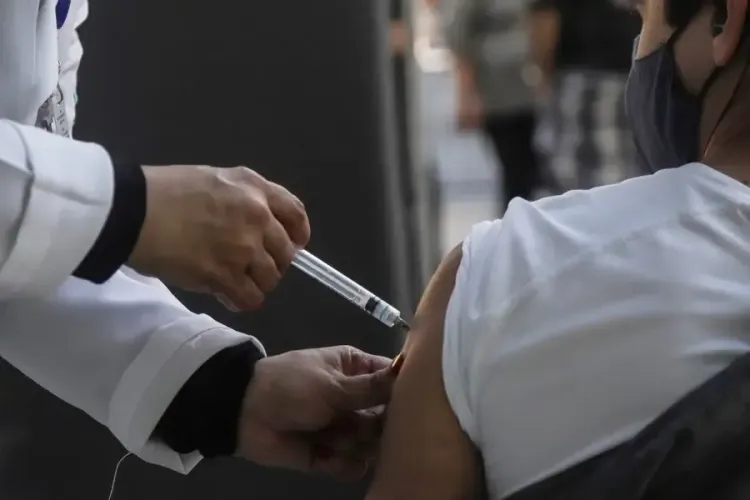Mongolia to Acquire 2,000 Doses of Meningococcal Vaccine

Synopsis
Key Takeaways
- Mongolia will receive 2,000 doses of meningococcal vaccine.
- The vaccine is a response to an ongoing outbreak.
- High-risk groups will be prioritized for vaccination.
- Symptoms of the disease include fever and stiff neck.
- Meningococcal disease is preventable with vaccination.
Ulan Bator, Feb 4 (NationPress) Mongolia is preparing to receive 2,000 doses of the meningococcal vaccine in the upcoming week, as announced by Health Minister Togtmol Munkhsaikhan.
Munkhsaikhan made this announcement during a meeting with Socorro Escalante, the resident representative of the World Health Organization (WHO) in Mongolia, at the National Center for Communicable Diseases (NCCD), according to Xinhua news agency.
The discussions revolved around the current outbreak of meningococcal meningitis, along with measures for preparedness, vaccination initiatives, and diagnostic methods to identify different strains of the infectious agent.
"The meningococcal vaccine is given as an epidemiological response to an outbreak, rather than as part of standard vaccination programs. Given its short shelf life, there is no permanent stock," Munkhsaikhan clarified.
Next week, Mongolia is expected to receive the 2,000 doses of the vaccine that were ordered in partnership with the WHO, with plans for the vaccination campaign to focus on high-risk groups and individuals who have had close contact with confirmed or suspected cases.
In late 2024, two cases of meningococcal infection were documented in Mongolia, according to the NCCD. Tragically, a three-year-old boy from the capital, Ulan Bator, succumbed to the disease just last week.
Moreover, two suspected cases have emerged in Ulan Bator, with laboratory tests still pending, as reported by the center.
Meningococcal disease is triggered by the bacterium Neisseria meningitidis and can result in severe infections affecting the protective layers of the brain, the bloodstream, or both. If left untreated, this infection can carry a high risk of mortality, although it is preventable through vaccination.
Typical symptoms of the disease encompass sudden fever, vomiting, nausea, headache, stiff neck, backache, and heightened sensitivity to light.
It is important to note that meningococcal disease is caused by a specific type of bacteria, whereas meningitis refers to the inflammation of the meninges. While meningitis can occur in cases of meningococcal disease, not every instance of meningitis is due to the bacterium responsible for meningococcal disease.
In the United States, rates of meningococcal disease have been decreasing since the years following World War II, with 371 cases reported in 2019. Small outbreaks still occur, primarily among individuals who reside in close quarters.










